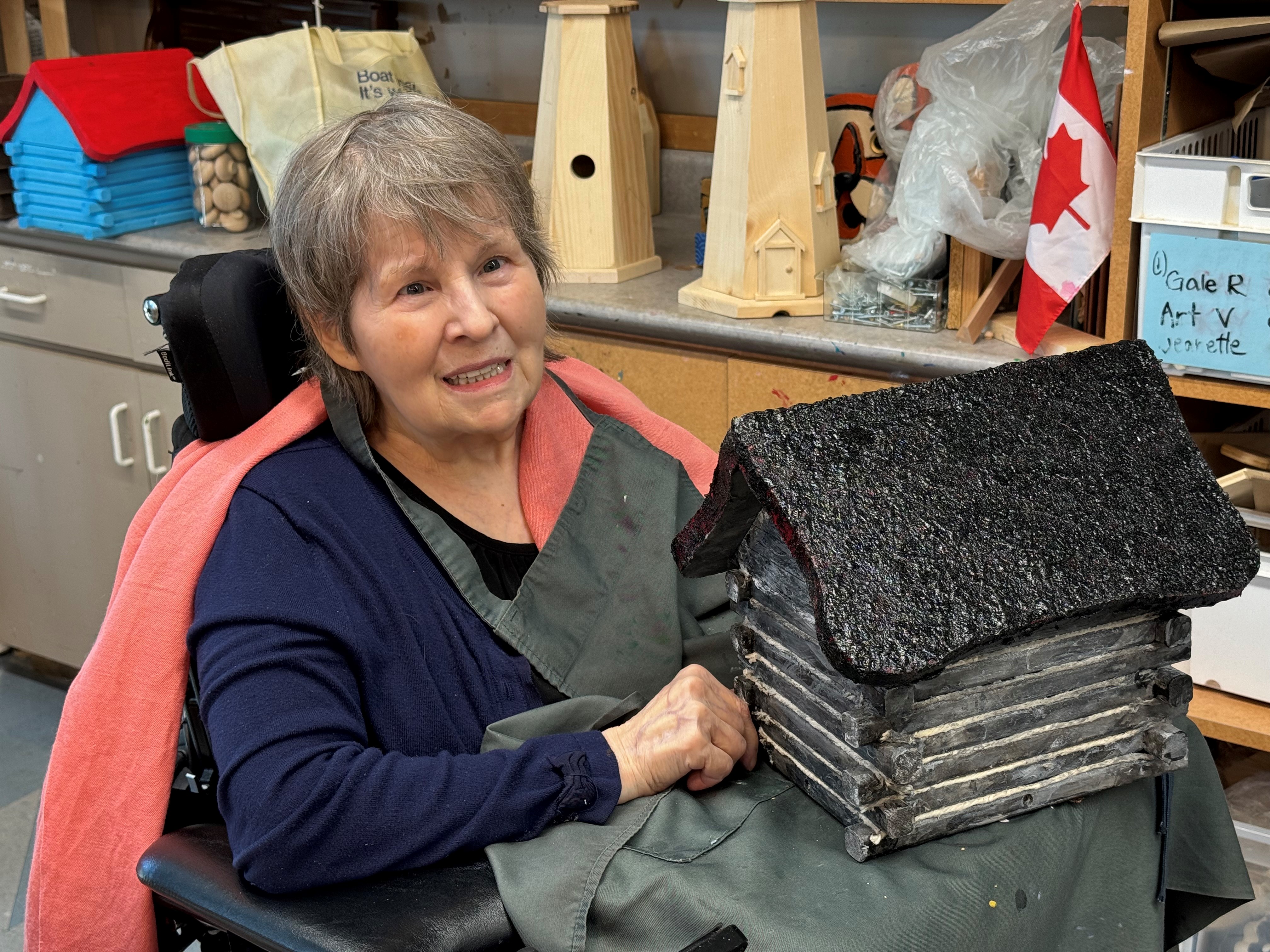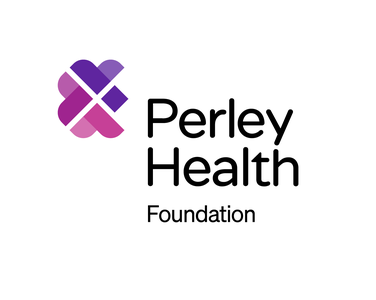Grace Under Pressure
 "I know that Perley Health saved my life. I am very lucky to be here." - Nicole Lafleche , Perley Health resident
"I know that Perley Health saved my life. I am very lucky to be here." - Nicole Lafleche , Perley Health residentEmpowering senior health and happiness through your generosity
Throughout her 79 years, Nicole Lafleche has relied on a relentlessly positive spirit to face—and overcome—a long list of difficult challenges. The latest were massive pressure injuries, commonly known as bedsores, that failed to heal despite a four-month hospital stay. Since moving into Perley Health two years ago, both the injuries—and Nicole’s quality of life—have improved dramatically.
Nicole is one of many residents who benefit from a quality-improvement project at Perley Health that helps prevent and reduce the severity of pressure injuries. Thanks to your support, lessons learned from the project can now help residents of other long-term care (LTC) homes.
“I know that Perley Health saved my life,” says Nicole. “I was in serious trouble when I arrived here. I had a long gash on my lower leg and two bedsores; the one on my coccyx was about the size of a grapefruit and the one on the upper part of my leg was 8 centimetres deep. Both were infected and had reached bone.”
Nicole was born on the American side of the Vermont-Quebec border. Her father was a Government of Canada customs officer, but since there were no suitable homes near the border station on the Quebec side, the family lived in Vermont. Her father, in his spare time, had begun to build a family home on the Quebec side but suffered a fatal heart attack. He was 42 years old. Nicole and her sister Lise were quite young, and their mother moved the family to her hometown of Sturgeon Falls, Ontario, and started working as a teacher.
Nicole married in the early 1960s and soon had two children: Carole and Denis. Her husband worked as a salesman for Burns Meat Company, a national meat producer and distributor, and Nicole became a homemaker.
During her mid-20s, she began to experience several unusual symptoms, including fatigue and double vision. After a battery of tests at St. Michael’s Hospital in Toronto, she was diagnosed with multiple scleroris (MS), an incurable and progressive disease that affects the nervous system. In her case, the disease progressed relatively slowly.
In the late 1970s, her husband was transferred to the National Capital Region and the family moved to Pointe Gatineau, Quebec. The couple eventually divorced, and Nicole moved to Ottawa with their two children, who attended l'École Secondaire Charlebois (now St. Patrick’s High School). Nicole earned a diploma in Commerce from Algonquin College and completed courses in the rapidly emerging field of computer studies. For several years, she worked at the Government of Canada until failing health forced her to retire.
By age 54, Nicole had lost the ability to walk. Recognizing that she would eventually need LTC, she and her sister visited several homes in the Ottawa area. She considered only one to be acceptable: Perley Health, although it had a 10-year waiting list. A space became available a decade later, but Nicole turned it down since she could still live independently thanks to various strategies, including regular visits from a personal support worker (PSW).
In her 70s, a series of health issues forced Nicole to reconsider her situation. She broke her leg and developed a nasty bedsore on her coccyx; a community nurse came to her home every two days to change the bandage. Since Nicole couldn’t see the wound, she asked her PSW to take a photo of it as the community nurse changed the bandage. When Nicole saw how bad it was, she went to the emergency room and was admitted to hospital. After four months in hospital, it was clear that she couldn’t return home. Luckily, a space at Perley Health became available. She moved in and immediately began to receive care from Samantha Boulerice, a Registered Nurse and certified Wound Ostomy and Continence Care Specialist.
“When Nicole arrived at Perley Health, her skin was in bad shape,” says Samantha.
Nicole’s pressure injuries began to heal, in large part due to the quality-improvement project launched at Perley Health a few years earlier. Boulerice is quick to share credit for the initiative’s success with Perley Health staff, donors and partners.
Thanks to your support, Perley Health acquired a sophisticated camera that uses violet light to identify infections, launched an in-house training program and purchased mannequins for hands-on instruction.
“My family and I are grateful to both donors and to Perley Health staff for my wellbeing,” says Nicole, who now fills her days with various activities, such as painting, sculpting and woodworking.
“It’s a joy for me to go to the studios; Ross Imrie and the studio team are so patient and caring. They always have interesting projects and the results are quite impressive. I cannot find the words to thank the instructors, the musicians, the volunteers and the entire medical staff for their care. They have created a peaceful and agreeable atmosphere. They go the extra mile to make Perley Health a home.”
“I’ve never been so busy in my life, I should have come the first time Perley called, ten years ago,” Nicole says with a laugh. “I once overheard a woman tell her mother during a visit: ‘Mom, coming here is like winning the lottery.’ How well said, I thought to myself. I am very lucky to be here.”
Your gift to the Perley Health Foundation is instrumental to Perley Health's ability to develop and share innovations in care. Thank you.

